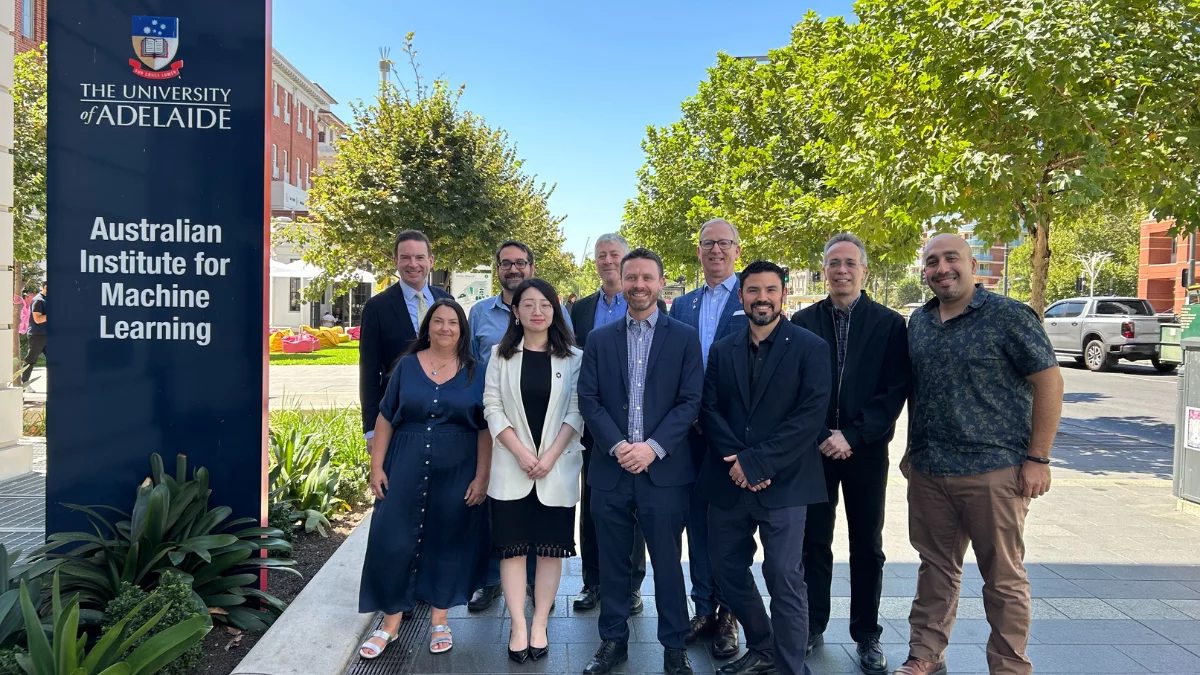
Artificial intelligence could help monitor and reverse the damage done to marine life – and improve women’s healthcare by making it easier to diagnose diseases such as endometriosis – according to researchers from universities in the UK and Australia.
The University of Adelaide, Australia, and the University of Surrey, UK, have announced a new phase of their partnership – distributing a joint seed-fund to combine research power on eight collaborative research projects that each target novel applications in AI, sustainability, space and cybersecurity. The eight – each with a research lead at Adelaide and another at Surrey – were selected from a highly competitive pool of 19 joint proposals.
Both Adelaide and Surrey share strategic strengths in the areas of AI, sustainability and space – with Surrey recently establishing two pan-university institutes: the Surrey Institute for People-Centred AI and the Institute for Sustainability, with work also ramping up around Surrey’s historic research strength and impact built around the Surrey Space Centre. Surrey also has one of the most respected cybersecurity research hubs in the UK – the Surrey Centre for Cyber Security.
The University of Adelaide is home to the Australian Institute for Machine Learning, the Institute for Sustainability, Energy and Resources, and the Environment Institute.
Patrick Degg, Vice-President, Global at the University of Surrey, said:
“The world is changing fast – and our partnership with the University of Adelaide is a clear response to that. It reflects how both our universities think ahead and act with purpose.
“We now have a real chance to shape technologies like AI so they work for people and the planet, not just for profit. I look forward to seeing Surrey and Adelaide build on this strong start in the years ahead.”
Another joint project that Surrey and Adelaide researchers will explore is how to promote academic integrity and authentic authorship in a world increasingly dominated by easily accessible AI models. Researchers will also investigate how to supercharge the development of space-based telecommunications systems – exploring the use of terahertz technology (a high frequency radio wave, faster than what is used for mobile phone and wi-fi) in satellites.
Professor Jessica Gallagher, University of Adelaide Deputy Vice-Chancellor, External Engagement, said:
“This joint seed-fund provides opportunities for researchers from different sides of the world to foster connections, share perspectives and build new knowledge. Together we can find solutions to some of the most pressing global challenges.
“We look forward to continuing to strengthen our collaboration with the University of Surrey to deliver innovative, interdisciplinary research that leads to a better future for all.”
The partnership between the two universities began in 2022 and has grown steadily through regular exchanges of senior staff and experts. In March 2025, a delegation from Surrey visited Adelaide to meet with local researchers, explore new project ideas and deepen their collaboration – including through the deployment of this joint research seed-fund. The visit was part of a wider programme of joint work, including shared research roundtables, student mobility talks, and planning development of industry-focused joint short courses to develop AI, cyber and space skills.


